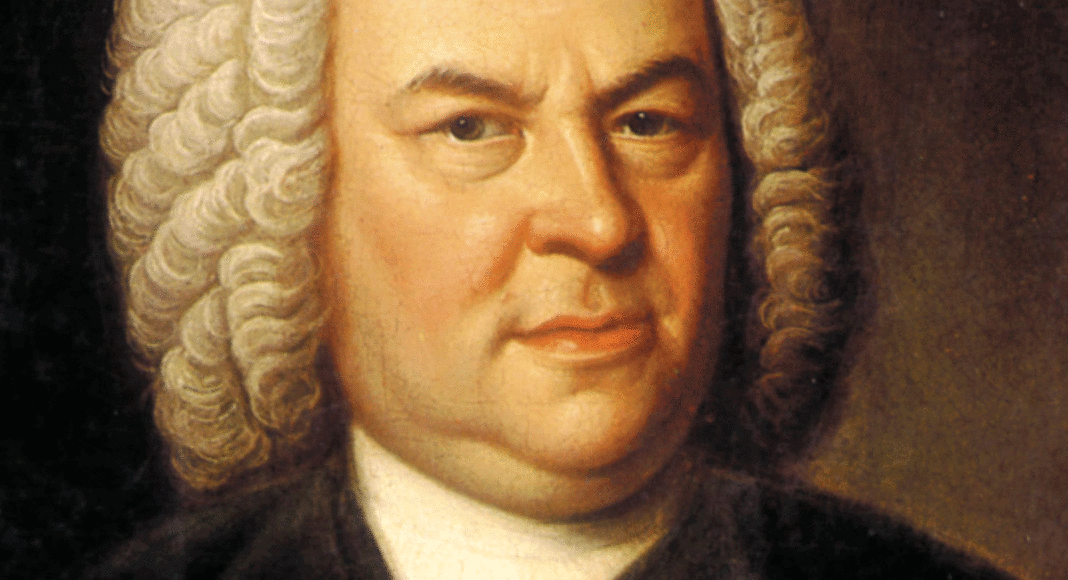We tend to think of a genius like Johann Sebastian Bach as having emerged from his mother’s womb already fully formed and throwing lightning bolts of blinding musical creativity from day one.
In fact, like the rest of us, Bach was once young, impressionable and subject to the cultural influences of his time. He was but a mortal human and, even as an artist, a product of the musical environment in which he matured.
You could even imagine Bach as a fanboy. In 1705, at the age of 20, he left his post as a church organist in the German town of Arnstadt to go see a performance of the famed German organist Dietrich Buxtehude in Lubeck, 235 miles to the north—on foot. Then, he walked back (and faced a reckoning from his cheesed-off superiors at work). If anyone builds a Fanboy Hall of Fame, J.S. Bach has to be in the inaugural class.
This year, the Santa Cruz Baroque Festival (SCBF) turns its gaze to the cultural milieu that made Bach into Bach. Under the guidance of Artistic Director Linda Burman-Hall, the festival tackles its 46th season with The Roots of Bach—a series of five concerts, beginning Feb. 9, that seeks to bring to life the world Bach came to know, love and draw upon to create music.
From the instruments widely used in performances during Bach’s youth to musical rituals of the age and the thriving coffeehouse culture that spawned Europe’s Enlightenment, this year’s Baroque Fest attempts to paint the color of the era that would inspire Bach to, for instance, walk almost 500 miles to see live music.
Bach has, of course, been a preoccupation for the SCBF before in its nearly half-century history. But Burman-Hall, a celebrated harpsichordist and faculty member at UCSC, says that the festival has never focused exactly on this aspect of Bach’s career. She credits the idea to a recent interest in the Asian art of bonsai, cultivating tiny trees that mimic full-grown trees.
“I have not deliberately focused on the roots of Bach,” she says. “But, you might say, since I’ve been a bonsai-ist for three years now, I’ve looked closer at trees in general, looking at big trees and thinking about small ones, looking at leaves and thinking about roots.”
The season looks at many of the older composers that fired Bach’s imagination, including Italians Arcangelo Corelli and Giralamo Frescobaldi, and Frenchman Francois Couperin. The festival’s first concert (Feb. 9, UCSC Recital Hall) explores the lute, the dominant string instrument of the Baroque period, with lutenist John Schneiderman, whom Burman-Hall unabashedly refers to as one of “the best lutenists in North America.”
In a later concert, the Baroque Festival will take on the organ music of Buxtehude to show audiences exactly what young J.S. Bach walked across Germany to hear. That concert focuses on the tradition of “Abendmusik,” popular in the 17th century, which featured evening performances of organ music. The March 23 concert at Santa Cruz’s Peace United Church will be lit, as it was in Bach’s day, by candle.
In May, the festival will dive into the coffeehouse culture of the era, specifically Zimmerman’s Coffeehouse in Leipzig, known for its free-wheeling informal concerts and its fertile literary scene. Among the pieces to be performed will be Bach’s Coffee Cantata, a comic operetta about a caffeine-addicted young woman and her battles with her father, who insists she give up coffee.
From fanboy obsession to coffee addiction, this year’s Baroque Festival is presenting a convincing illustration that the world in which J.S. Bach came of age 300 years ago is not so different from the one we all inhabit today.
“I saw something in an archaeology magazine just the other day,” says Burman-Hall, “where they were exploring the ruins of an old English coffeehouse and found all these mismatched cups and saucers. That caused them to realize that people were individuating themselves by their coffee drinks, just as we do today.”
‘The King of Instruments in the Age of Bach,’ the opening concert of the Santa Cruz Baroque Festival’s ‘The Roots of Bach,’ will be performed at 7:30 p.m. on Saturday, Feb. 9, at the UC Santa Cruz Recital Hall. $25 general/$22 senior/$10 students. scbaroque.org.













